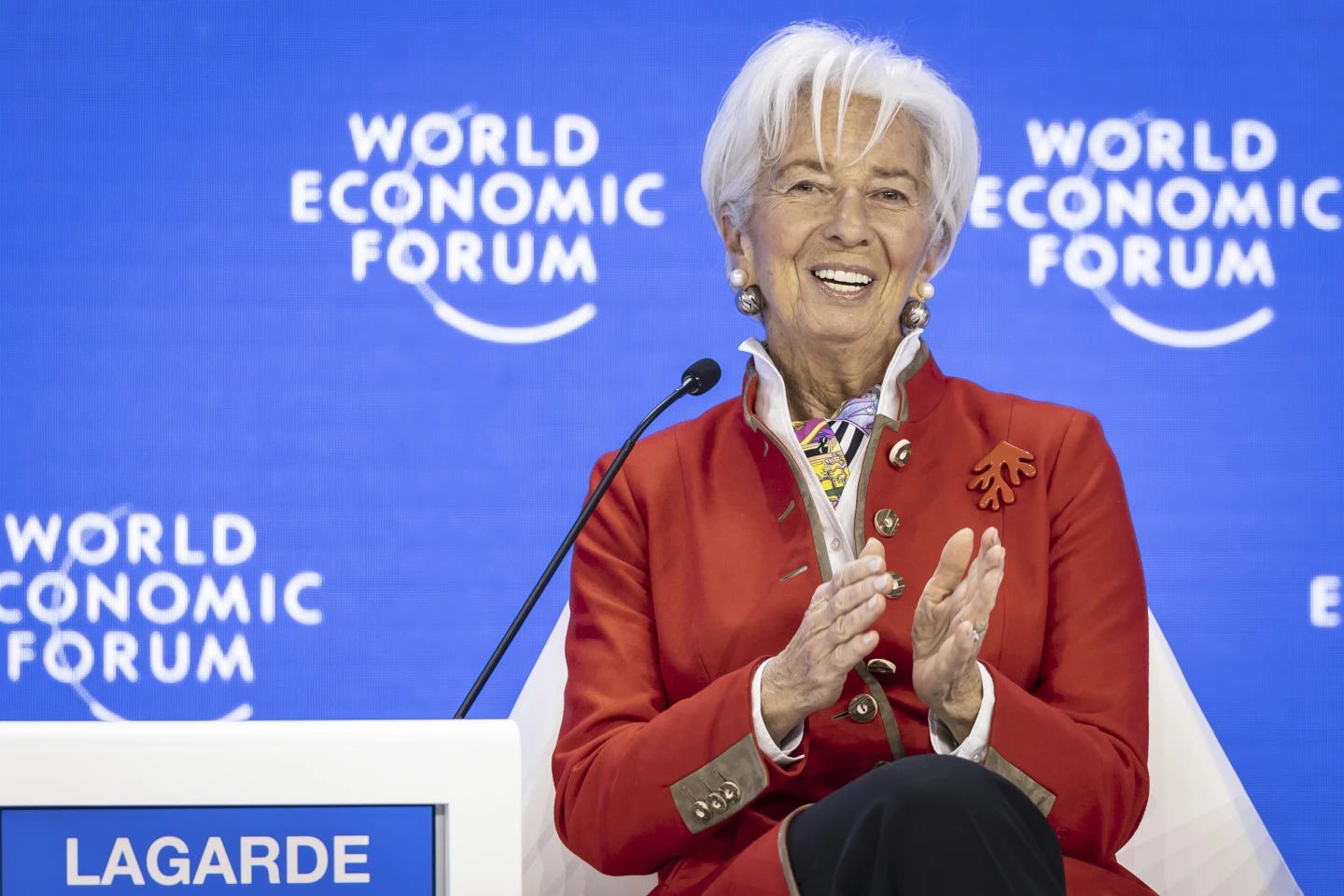As Davos Concludes, Leaders Embrace Optimism Amid Global Divides and Crisis
DAVOS, Switzerland (AP) — The final day of the World Economic Forum in Davos saw leaders from across the globe offering mixed messages of optimism and concern as they addressed a variety of urgent issues. Christine Lagarde, president of the European Central Bank, responded to U.S. President Donald Trump’s criticism of the European Union’s trade practices, calling for respectful negotiations rather than focusing solely on trans-Atlantic trade imbalances.
Lagarde’s remarks, which referenced the growing rift between the U.S. and EU, offered a fitting conclusion to a week of discussions where Trump’s anticipated return to the White House dominated the conversation, overshadowing debates on climate change, economic development, and free trade. Many attendees, including business leaders, policymakers, and academics, aimed to cast a positive light on global economic prospects, progress in conflict zones like Ukraine and the Middle East, and the potential of new technologies.
However, some voices urged the world not to forget the hardships faced by marginalized populations, including the poor, migrants, and those affected by war.
Trump and Tariffs Trump, in a video address during the forum, doubled down on his stance regarding the U.S. trade deficit with the EU, stating that the U.S. would take action to address what he described as "hundreds of billions of dollars of deficits." He warned that there would be consequences for these imbalances.
Lagarde responded by urging a more nuanced approach to the trade issue, noting that discussions should consider not only the trade deficit but also services exchanges and capital flows. “It cannot just be black and white,” she said. “There has to be negotiation.”
While tariffs were a focal point of discussions, most Davos participants warned of the risks they pose, including rising inflation. Kristalina Georgieva, managing director of the International Monetary Fund, stressed the importance of open trade relationships, noting that nations with cooperative trade policies tend to fare better in the long term.
Optimism for Some, Criticism from Others Despite concerns over tariffs, many business leaders remained optimistic about the economic outlook. Rich Lesser, global chairman of Boston Consulting Group, acknowledged the uncertainties posed by tariffs but expressed optimism about the strong U.S. economy and positive momentum in Europe. He emphasized the need for European governments to focus on competitiveness and undertake necessary reforms, despite the political challenges.
However, not everyone shared this rosy view. Critics, including Agnès Callamard, secretary-general of Amnesty International, voiced concerns about the disconnect between Davos’ elite discussions and the global suffering outside its luxury venues. Callamard criticized the lack of critical engagement with Trump’s policies, particularly his potential impact on global peace and security. She highlighted the struggles of climate refugees, migrants, and civilians in conflict zones, warning that the “constructive optimism” espoused at Davos risked overlooking the realities faced by vulnerable populations.
“We cannot hide our faces in the sand,” Callamard declared, underscoring the need for accountability and action on the world’s most pressing crises.


